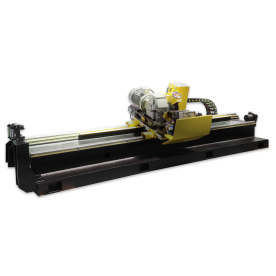[Precision induction heating equipment]Understanding Precision Induction Heating Equipment: Applications, Benefits, and Innovations in Modern Industry
News 2024-8-15
Induction heating has emerged as one of the most efficient methods for heating metallic materials in various industrial applications. At the heart of this technology lies precision induction heating equipment, which caters to the bespoke needs of manufacturers looking to enhance productivity, reduce energy consumption, and improve product quality. In this article, we will delve into the working principles, advantages, applications, and recent innovations related to precision induction heating equipment.
What is Precision Induction Heating?
Precision induction heating is a process that utilizes electromagnetic fields to directly heat conductive materials, such as metals. Unlike traditional heating methods that warm the entire object from the outside in, induction heating generates heat within the material itself. This is achieved by inducing an electric current through the workpiece using a coil through which an alternating current is passed. The resulting resistance of the material to the induced current generates heat, allowing for rapid and localized heating.

Understanding Precision Induction Heating Equipment: Applications, Benefits, and Innovations in Modern Industry
Applications of Precision Induction Heating Equipment
Precision induction heating is employed across various sectors, reflecting its versatility and efficiency:
1. **Metal Hardening and Annealing**: One of the most common applications is for metal hardening and annealing processes. Precision induction heating equipment can be used to heat the surface of metals quickly, enhancing hardness and fatigue resistance, thus prolonging the lifespan of components used in high-stress environments.
2. **Brazing and Soldering**: Induction heating offers a clean and efficient means to join metals through brazing or soldering. The localized heat allows for precise control over the bonded joint quality, ensuring strong and reliable connections while minimizing the risk of oxidization.

Understanding Precision Induction Heating Equipment: Applications, Benefits, and Innovations in Modern Industry
4. **Shrink Fitting**: Utilizing the thermal expansion properties of metals, precision induction heating equipment can heat one part of a component while keeping another cold, allowing for a perfect fit between components without the need for additional tooling.
5. **Heat Treatment**: For heat treatment processes, precision induction heating ensures that specific areas of a workpiece achieve the desired hardness or other material properties. The ability to control the heating and cooling rates significantly impacts the material's microstructure and performance.
Benefits of Precision Induction Heating Equipment

Understanding Precision Induction Heating Equipment: Applications, Benefits, and Innovations in Modern Industry
- **Energy Efficiency**: Induction heating uses less energy compared to conventional methods. The heat is generated directly within the workpiece, leading to lower energy costs and reduced carbon footprint.
- **Speed and Precision**: The rapid heating capability significantly enhances cycle times, allowing businesses to increase production output. Additionally, precision heating ensures uniform heat distribution, resulting in consistent product quality.
- **Reduced Oxidation and Contamination**: Because induction heating does not rely on flames or direct contact with heat sources, it minimizes the risk of oxidation or contamination, resulting in cleaner and higher-quality produced parts.
- **Enhanced Safety**: With lower surface temperatures and fewer open flames, induction heating equipment provides a safer working environment for operators compared to traditional methods.
Innovations in Precision Induction Heating Equipment
Recent innovations in the field of precision induction heating equipment have focused on improving control systems and incorporating smart technology. Equipment that utilizes Internet of Things (IoT) capabilities for real-time monitoring and analytics is becoming prevalent. These systems enable operators to remotely manage operations, reduce downtime, and predict maintenance needs, increasing overall efficiency and reducing operational costs.
Additionally, the integration of advanced materials, such as high-frequency coils and more efficient power electronics, has further enhanced the performance of precision induction heating equipment, enabling broader applications across different sectors.
Conclusion
Precision induction heating equipment represents a modern solution for industries seeking efficiency, precision, and quality in their heating processes. With ongoing advancements in technology and an ever-expanding range of applications, this equipment will continue to play a pivotal role in shaping the future of manufacturing. As industries become increasingly competitive, adopting such innovative technologies will be crucial for achieving operational excellence and meeting market demands.
